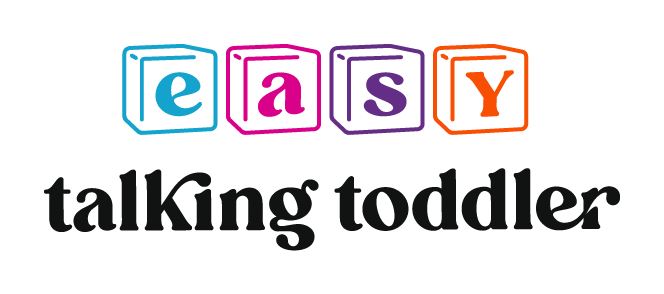I remember the first time a parent told me about the Einstein speech delay. From the description of the child’s abilities, it sounded more like autism to me, as far as I knew at the time, anyway. You see, the Einstein speech delay (also called Einstein Syndrome) doesn’t exist as an official diagnosis in any manual, but over the years has come to be regarded within the SLP community.
Because of this, there is a lot of confusion surrounding it, particularly among parents of late-talking children. So today I’m clearing up some misconceptions and sharing some of the key characteristics of Einstein Syndrome, to help you further understand your child’s developmental trajectory and their needs.
So What Is the Einstein Speech Delay?

The term Einstein Syndrome was originally coined by economist Thomas Sowell. It refers to children who develop their language skills late, and then eventually come to possess above-average intelligence levels.
It’s named after Albert Einstein, who is rumored to have been a late talker, not speaking fluently until he was several years old.
Key Characteristics of the Einstein Speech Delay
Though not officially recognized as a diagnosis, Einstein Syndrome has several key characteristics. They are:
Delayed Speech Development
Children with Einstein syndrome typically start speaking later than their peers, often not until they are 3 or 4 years old.
Normal or Advanced Non-Verbal Skills
Despite the delay in speech, these children often show normal or advanced abilities in other areas, such as problem-solving, memory, or spatial reasoning.
Strong Analytical or Creative Abilities
Many of these children exhibit exceptional analytical or creative skills, often excelling in areas like mathematics, music, or engineering.
Family History
There is often a family history of late talkers, individuals with high intelligence, or exceptional abilities in specific fields.

Misconceptions & Clarifications of Einstein Syndrome
As a Speech Language Pathologist, I’ve found that there tend to be some common misconceptions regarding the Einstein Speech Delay. So here are some clarifications:
The Einstein Speech Delay is Not a Medical Diagnosis
While it has an official name, Einstein Syndrome is not a recognized medical or psychological diagnosis.
It’s more of a descriptive term used to explain a specific pattern of development.
The Einstein Speech Delay is Different From Autism Spectrum Disorder (ASD)
Though some children with delayed speech may be diagnosed with ASD, children with Einstein Syndrome do not exhibit the social and communication challenges typically associated with autism.
The Einstein Speech Delay is Not Universal
It’s important to note that every child’s case is unique. Not all late-talking children will turn out to be exceptionally gifted. Some may simply have a different development trajectory, while others may have underlying issues that need to be addressed.
Tips for Supporting a Late-Talking Child
If you are the parent of a late-talking child, it can feel discouraging or overwhelming to understand how best to support them. Here are some tips I often recommend to parents:
- Early Intervention – If a child is significantly delayed in speech, it is important to consult with a pediatrician or speech-language pathologist to rule out any underlying issues.
- Encouragement and Patience – Providing a supportive environment where the child feels encouraged to communicate is crucial. Avoid putting too much pressure on the child to speak before they are ready.
- Engagement in Non-Verbal Activities – Engaging your child in activities that do not require verbal communication (such as puzzles, building blocks, or musical instruments) can help them develop other skills while they work on their speech.
[You May Also Like: Understanding Late Talking: What Every Parent Needs to Know]
Late-Talker Evaluations
Einstein syndrome highlights the diversity in developmental trajectories and serves as a reminder that late speech development does not necessarily indicate a lack of intelligence or potential.
However, it is important to monitor a child’s overall development and seek professional advice if you have concerns about their progress.
As a certified Speech Language Pathologist, I offer Late-Talker Evaluations as well as a self-paced online course to help you understand how you can best support your late-talking child. I’d love to support you and your child however you need!

